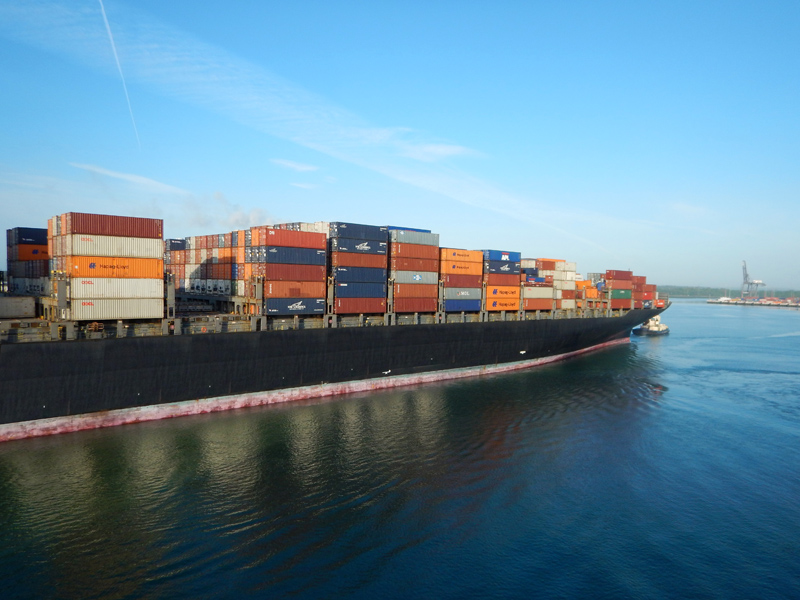IMO Intersessional Working Group on Reduction of Greenhouse Gas (GHG) Emissions from Ships (2nd session).

IMO Secretary-General
Kitack Lim said, “The working group made some considerable progress in bringing
together the proposals for the different elements of the draft IMO GHG
strategy. I am confident that Member States will continue to work on this ahead
of the next working group session, to build convergence so that the draft initial
IMO GHG strategy can be adopted as planned at the next session of the Marine
Environment Protection Committee in April 2018.”
The second meeting of the Intersessional Working Group on Reduction of Greenhouse Gas (GHG) Emissions from Ships (23-27 October) has made progress in starting to shape a draft initial IMO GHG strategy including refining the vision for IMO, which will express IMO's further commitment to reducing GHG emissions from international shipping.
While the structure of the strategy has been largely agreed, the detailed text to be included is still under discussion.
A wide range of detailed proposals were put forward for inclusion in the draft initial strategy. These included those relating to the vision, levels of ambition, guiding principles, candidate measures, barriers and supportive measures and follow up actions. The group agreed that the draft strategy should incorporate a process for its periodic review.
The group agreed that candidate short-term measures could be measures finalized and agreed by the Marine Environment Protection Committee (MEPC) between 2018 and 2023; candidate mid-term measures could be measures finalized and agreed by the MEPC between 2023 and 2030; and candidate long-term measures could be measures finalized and agreed by the MEPC beyond 2030. Dates of entry into force and when the measure can effectively start to reduce GHG emissions would be defined for each measure individually. The group supported the need for early action.
The group highlighted the need to consider carefully the potential impact of measures on States, particularly the least developed countries (LDCs) and small island developing States (SIDS). The group also recognised the need to address barriers and provide supportive measures, including capacity building and technical cooperation; and research and development especially into alternative fuels.
The aim is to reach consensus at the next meeting.
IMO Secretary-General Kitack Lim said, "The working group made some considerable progress in bringing together the proposals for the different elements of the draft IMO GHG strategy. I am confident that Member States will continue to work on this ahead of the next working group session, to build convergence so that the draft initial IMO GHG strategy can be adopted as planned at the next session of the Marine Environment Protection Committee in April 2018."
The Working Group's report, along with other submissions, will go forward to the third Intersessional Working Group session, scheduled to meet 3-6 April 2018. The third session is expected to finalize a draft initial IMO GHG strategy, to be put forward for adoption by the Marine Environment Protection Committee (MEPC 72) (9-13 April 2018).
This is in accordance with the timeline set out in the Roadmap for developing a comprehensive IMO strategy on reduction of GHG emissions from ships, which was approved at MEPC 70.
IMO has already adopted global mandatory measures to address the reduction in GHG emissions from ships.
IMO is also executing global technical cooperation projects to support the capacity of States, particularly developing States to implement support energy efficiency in the shipping sector.
The Intersessional Working Group on Reduction of Greenhouse Gas (GHG) Emissions from Ships was attended by more than 200 delegates, from more than 50 Member States. Participants from international intergovernmental organizations and from a range of international non-governmental organizations in consultative status with IMO also participated in the meeting.
_________
